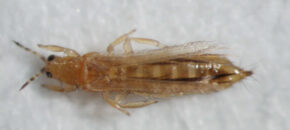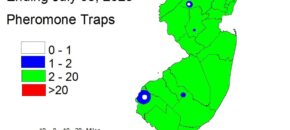
Now that spring grains like wheat and rye have dried down and are being combined, thrips in those fields will move to vegetable crops, especially when small grains are adjacent to vegetable fields. Thrips are very small and often missed if casually looking at a plant since they hide in blossoms, under sepals, on under […]
Continue reading...
